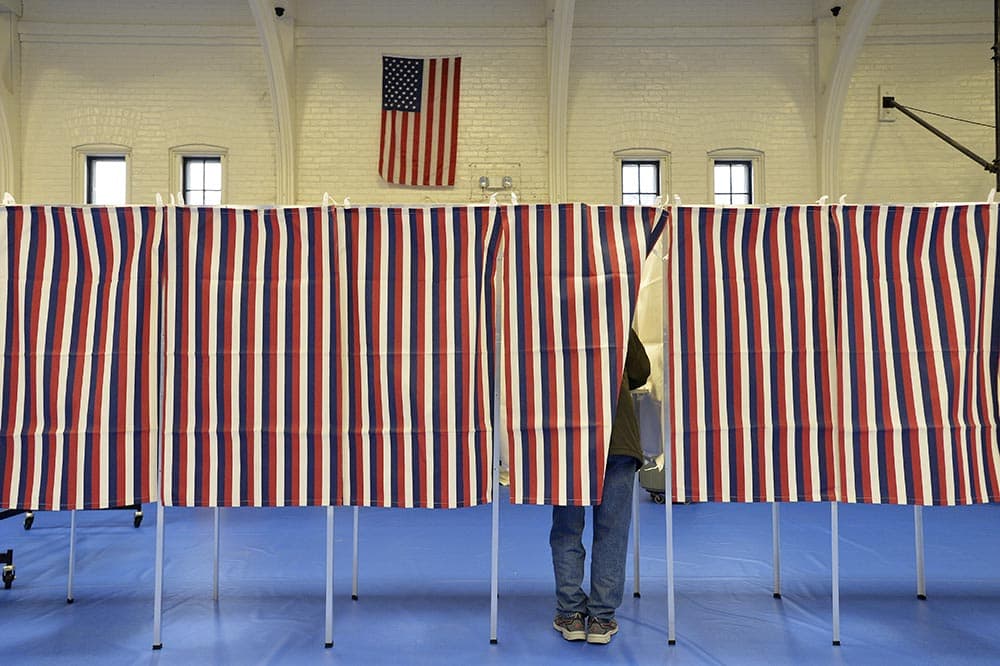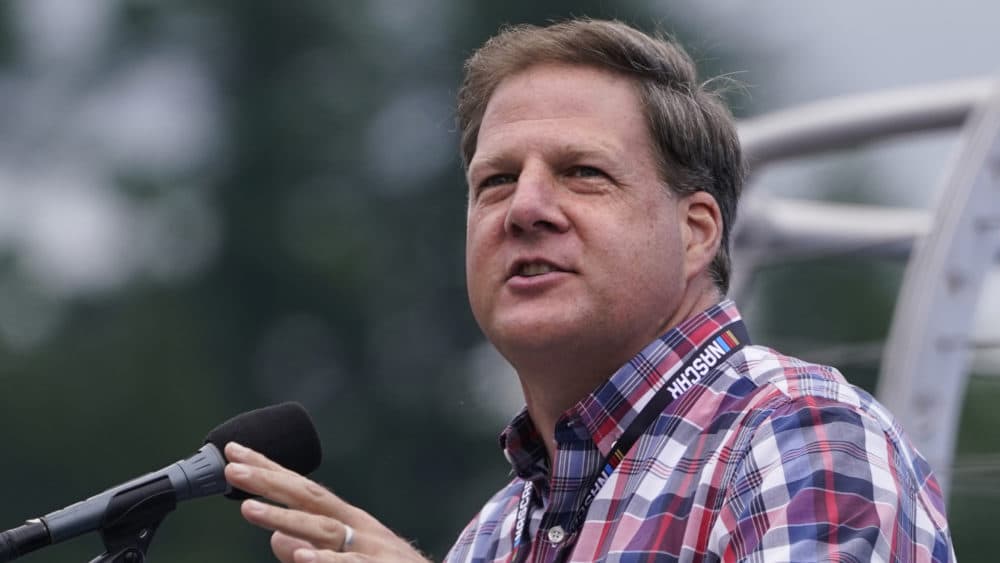Advertisement
The battle to control Congress comes to N.H., sparking charges of gerrymandering

A Republican plan to redraw the Congressional maps in New Hampshire has outraged many Democrats and voting rights activists across the state. It's one of many fierce redistricting battles underway across the country.
About a dozen of people expressed concern about the proposal at a public hearing last week at the state capitol in Concord.
"Don't do this to the state of New Hampshire," implored Gayle Kinney, a Congregational pastor from the town of Canaan. "Thou shalt not gerrymander."
New Hampshire currently has two Congressional districts where Democrats have won the last three elections. But Republican lawmakers, who have majorities in the state legislature, have proposed redrawing the map to create a Democratic-leaning district that wraps around a second district favoring Republicans.
The change would likely help Republicans win back one of the two Congressional seats in the Granite State by shifting hundreds of thousands of voters from one district to another. Democrats call it a blatant case of gerrymandering.
"This would be the most dramatic change in our state's congressional maps over the course of the last 140 years," said Matt Wilhelm, a Democratic state representative from Manchester.
It's a fight playing out in many states to determine who will control Congress for years to come.
"We live in a very hyper-partisan age," said Michael Li, senior counsel at the Brennan Center for Justice, a nonpartisan law and policy institute based in New York.
Lawmakers are required to adjust Congressional maps every 10 years following the U.S. Census to make sure districts have roughly equal numbers of voters within each state.
But Li said the redistricting fights have increased this year partly because the Democrats hold such slender majorities in Congress. Republicans could retake the House by flipping just a handful of seats this November, increasing the interest of both sides in the process.
Advertisement
Given the opportunity, Li said both parties engage in gerrymandering. Critics have accused Democrats of gerrymandering in New York, for instance, to win as many as three additional House seats.
But nationally, Republicans have a big advantage this cycle because they control most state legislatures that are redrawing the maps. Only nine states, mostly in the West, leave the work to nonpartisan commissions.
Li said that the proposed Republican map in New Hampshire also stands out because it would shift more than a quarter of the state's population.
"Whenever you see large population movements like that it's a huge red flag," he said. "That's like an immediate signal that you need to take a closer look under the hood."
New Hampshire, which has historically found ways to avoid sharp fights over redistricting, is a purple state that usually leans blue in federal elections. Democrats have won the last five presidential races in the state. Both U.S. Senators are Democrats. And Democrats have held both House seats for the past five years.
But in 2020, Republicans took control of the state Legislature and have used that position to redraw the Congressional maps. The House approved the Republican proposal along party lines last month, sending it on to the state Senate.
Republicans defended their proposal, saying it would ensure the two districts maintain an equal number of voters after the latest Census.
"I don't think it's gerrymandered," said Barbara Griffin, a Republican state representative from Goffstown, who led the effort to re-design the map in the House. "One of the principles of redistricting is that you don't protect incumbency and you're supposed to be drawing lines essentially from scratch, much to the consternation of many people who hit the voting booth or who were elected."
Griffin also defended creating two districts that are less competitive — one that would favor Republicans and the other favoring Democrats. She said that would help New Hampshire representatives stay in power longer, build up seniority and ultimately increase the state's influence in Washington.
Ross Berry, a Republican State Representative from Manchester, agreed. He said New Hampshire currently doesn't have enough senior members of Congress, limiting their clout.
"Let's look at the infrastructure plan they just passed through Congress," Berry said. "New Hampshire was dead last in funding - and it's because our Congress people are not able to climb the ranks of leadership."
The Republican proposal could also help the party retake the U.S. House of Representatives. New Hampshire GOP Chairman Stephen Stepanek pledged last year that his party would send a Republican to Congress in the next election — and the proposed GOP map would make that more likely.
Democrats have an alternative plan to balance the population by shifting just one town with fewer than 10,000 people. By contrast, the Republican plan would move 75 towns and wards and more than 365,000 voters.
Wilhelm, the Manchester Democrat, argues the Republican map would discourage people from voting - because the districts would be less competitive. And he said it would make it harder for moderates to win a primary.
"I think we're going to see really extreme candidates emerge out of partisan primaries, who then have a clear path to victory in the general election," Wilhelm said.
Only one person spoke in favor of the proposed Republican map at last week’s public hearing in Concord. Everybody else objected, including Corinne Dodge of Derry.
"All this so that the majority party will have an unfair advantage in winning elections for the next 10 years," Dodge said. "No political party should do that to voters."

Last year, New Hampshire's Republican governor, Chris Sununu, said he would veto any redistricting plan that "doesn't pass the smell test." And he recently suggested on WMUR-TV that the state Senate alter the Republican proposal.
"If you have a map like that you're really locking folks in," Sununu said.
But Sununu didn't say whether the current Republican map failed his "smell test," and he stopped short of threatening to veto it. "I just think it could be better," he said.
Critics say the outcome of future elections in New Hampshire depends on what happens next.
This segment aired on February 7, 2022.
